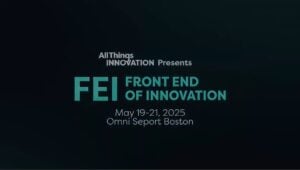1. Competitive Disadvantage
For FMCG companies, the competition is relentless. Without AI, brands risk falling behind as competitors leverage AI for supply chain optimization, dynamic pricing, and consumer behavior prediction. Embracing AI is no longer about keeping up—it’s about setting the pace for innovation and efficiency in a sector where margins are thin and scale is everything.
2. Consumer Expectations
In an industry driven by consumer choices, AI provides the insights necessary to deliver the personalized experiences that customers now expect. Whether it’s through AI-driven recommendation engines or smart inventory management ensuring their favorite products are always in stock, consumers gravitate towards brands that seem to “know” them. Without AI, FMCG brands risk becoming faceless entities in a market that demands personalization.
3. Risk Management
AI’s predictive analytics can be the crystal ball that FMCG companies need to foresee and navigate risks—from fluctuating commodity prices to changing regulatory landscapes. In a sector where brand reputation is paramount, failing to predict and mitigate risks quickly can result in more than just lost sales—it can damage a brand’s credibility irreparably.
4. Regulatory Compliance
As regulations become more stringent and complex, especially around sustainability and ethical sourcing, AI offers FMCG companies the tools to stay compliant and ahead of legislative changes. Non-compliance can result in hefty fines and, even worse, a public relations nightmare that no FMCG brand can afford.
5. Efficiency & Cost Savings
With razor-thin margins, the FMCG sector’s success hinges on efficiency and the ability to reduce costs without compromising on quality. AI helps streamline production lines, optimize logistics, and reduce waste, ensuring that resources are utilized to their fullest potential. Without an AI strategy, FMCG companies may see their profits squeezed as operational inefficiencies go unchecked.

6. Data Utilization
Data is the new oil, and in the FMCG sector, it’s flowing abundantly. AI is critical in converting this data into actionable insights—understanding market trends, predicting demand, and crafting marketing strategies that resonate. Ignoring AI means ignoring the data that could drive the next big FMCG trend.
7. Talent Attraction & Retention
AI expertise is becoming as essential as marketing savvy in the FMCG sector. Companies that showcase a commitment to AI innovation are more attractive to the best minds in data science and analytics. Without an AI strategy, FMCG companies may find themselves bereft of the talent that could drive their next breakthrough.
8. Strategic Alignment
For FMCG brands, aligning every aspect of the business with consumer demand is crucial. An AI strategy ensures that technological investments directly support the goal of meeting consumer needs quickly and effectively. Without this alignment, FMCG companies may find themselves investing in tech that doesn’t deliver ROI or, worse, detracts from the consumer experience.
The bottom line for FMCG companies in 2024 is clear: integrate AI into your strategy or risk falling behind. AI isn’t just about technology; it’s about staying relevant, resilient, and responsive in a sector where the consumer is king and the market waits for no one. An AI strategy is an indispensable tool in the FMCG toolkit, and those without it may soon find themselves unable to compete in the increasingly tech-driven marketplace.
Click here for more columns by Gail Martino; if you enjoy this content, please consider connecting with Gail Martino on LinkedIn.
Contributor
-

Gail Martino, Ph.D is a thought leader and global innovation leader in the fast-moving consumer goods industry, having worked with billion-dollar brands at Unilever and previously at Gillette. With a background spanning both corporate and academic roles, Gail has a proven track record in developing and executing highly effective innovation ecosystems, driving value through strategic partnerships and internal product development. Notably, she has been a valued member of the advisory board for the Front End of Innovation conference since 2015.
View all posts








































































































































